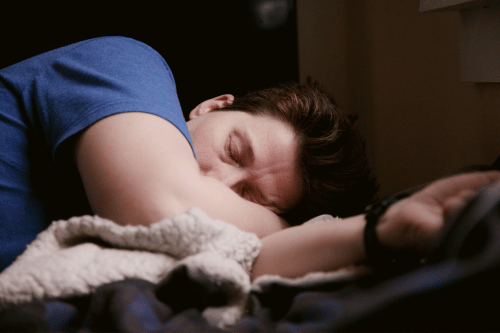Idaho, Iowa, Des Moines

Masking is part of almost every neurodivergent person’s lived experience. It isn’t a sign that you’re doing anything wrong; it’s a way of protecting yourself in situations where the world doesn’t feel supportive enough for your full, unfiltered self. While masking often gets criticized as “inauthentic,” the truth is that it’s simply a protective strategy, and one that can be incredibly useful. Sometimes it’s the only option that makes sense.
That doesn’t mean it comes without a cost. Masking is exhausting, and it can leave you feeling drained or disconnected. Recognizing when masking is necessary and then tending to yourself without shame before, during, and afterward can help you find more neutrality and balance in the process.

Neurodivergent masking often gets talked about like it’s the enemy. Social media pushes the idea that good neurodivergent people unmask everywhere, all the time, and that full authenticity means dropping the mask no matter what. But just like with most things on social media, this is an inaccurate and oversimplified portrayal of a complex situation.
You might choose to stay masked because your workplace still stigmatizes ADHD or autism, and you can’t risk being overlooked for a promotion. You might keep the mask on around family members who dismiss or minimize your needs. Maybe you mask socially to find belonging. If you’re queer, trans, or BIPOC, you’re already navigating layers of prejudice, and unmasking could make you more vulnerable.
Even when the risks aren’t external, there are internal ones. Your nervous system may not yet feel resourced enough to handle the intensity of being unmasked. You might simply be too tired to manage the fallout of other people’s reactions. These choices don’t make you inauthentic. They mean you’re navigating a world that hasn’t caught up with you yet.
Shame and shoulds often accompany behaviors like masking. Shame won’t help you change how you behave, though. When you take a step toward accepting that masking is sometimes the best option, it becomes easier to let go of that shame. Tending to yourself while you mask pushes back against your inner critic and reminds you that you deserve care and compassion, no matter the circumstances.
Masking takes a lot of energy. You’re self-monitoring and managing yourself constantly. You’re hiding stims, carefully selecting your words, adjusting your tone, watching other people’s reactions, and calculating what’s acceptable or unacceptable all the time.
This constant vigilance drains your body and mind. Some of the most common impacts of chronic masking include:
Masking doesn’t erase who you are, but it can make you feel far away from yourself. Intentional recovery and care help bridge this connection gap and ease some of the vigilance.

When you view masking as inauthentic, it’s easy to spiral into shame. Reframing can help. Instead of telling yourself “I’m being fake,” try reminding yourself, “I’m doing what I need to feel safe right now.” That shift acknowledges your agency and reduces self-blame. Here are some ADHD masking strategies you can use throughout the process.
Masking is demanding, and putting on a performance when you’re already depleted makes it even harder. A little preparation can help prevent total exhaustion before you step into environments where masking feels necessary.
Here’s how to prepare your energy:
While you’re in the middle of masking, it can feel like you’ve lost touch with who you are. Here are some ways to stay grounded and connected to yourself while you’re masking:

The recovery period is your chance to be intentional about allowing your nervous system to dial down.
Here are some ways to rest and recover after masking:
When you take time to be with yourself, care for yourself, connect with others who see you, and give yourself self-compassion, you build safety in your nervous system. The more safety you build, the more you’ll feel regulated and resilient when you do need to mask. Over time, you can build a toolkit that helps you transition more smoothly between masked and unmasked spaces.
Therapy can be a safe way to explore what authenticity feels like in your body, without judgment. You don’t have to perform or explain yourself in the same ways you do with coworkers or family.
Working with a therapist or coach who understands neurodivergence gives you a place to:
You don’t need to unmask everywhere all the time in order to be authentic. Having the agency to choose when, where, and how you show up is true authenticity. You deserve care and compassion in every version of yourself: masked, unmasked, and everywhere in between.
Get in touch to learn more and find out if we’re the right fit for your needs.
Danielle is an anxiety therapist and perfectionism coach. She specializes in helping busy millennials dial down their anxiety and ADHD, so they can perform at their best. Danielle has been featured on Apartment Therapy, SparkPeople, Lifewire, and Now Art World. When Danielle isn't helping her clients, she's playing video games or spending time with her partner and step children.


